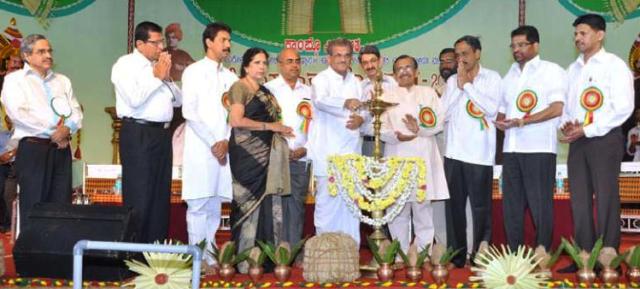
Puttur, November 3: Farmers should come out of a wrong notion that mechanisation is costlier compared to manual labour, said Dharmadhikari Dr D Veerendra Heggade.
Speaking after inaugurating three-day Krishi Yantra Mela (agriculture machinery fair) at Vivekananda Technical Institute grounds, here on Friday, he stressed on the need to involve mechanisation in farming sector.
With the labour problem affecting the farmers, it is the right time to look out for alternatives like mechanised farming and use of modern techniques which would help the farmers to a great extent to come out of the existing problem.
He said the modern technologies adopted in farming would help the farmers to save the time hence there should not be apprehension in adopting modern techniques.
Pointing out at the difficulty in the availability of farming machines to the farmers, he said the villagers could themselves open up to the trade of selling farming machines to the needy farmers.
“Though modern machines have been developed to help the farmers, they have not yet reached the villages and the farmers. The experiments and innovations should be done by the farmers themselves, while the big companies should support the farmers and other innovators who attempt to invent farming machineries,” he said.
He also said that those who are interested in inventing farm machineries could avail benefits for the research under Arecanut Research and Development Foundation (ARDF).
Campco President Konkodi Padmanabha presided over the programme. Deputy Speaker N Yogish Bhat, MP Nalin Kumar Kateel and others were present.







Comments
Add new comment